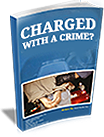What Is The Typical DUI Arrestee Like?
There is really nothing typical about the types of people who get arrested for a DUI, so there is no such thing as a typical DUI client. The majority of people who get a DWI are people who simply made a mistake and they may have made an error in judgment and ended up getting themselves into a bad situation.
There are individuals who have serious alcohol problems and who drive while they are still suspended from previous events or things like that, although for the most part most people do not get multiple DUIs. There are definitely people out there who do get multiple DUIs but for the most part, they do not, so the people who get DUIs are just like any one of us.
Do People Who Are Arrested For A DUI Typically Have A High Blood Alcohol Level?
0.08 is the legal limit in New Jersey, although very few people actually show a result of 0.08 exactly. For the most part it would be very hard to get a reading of exactly 0.08 because people usually score 0.09 or 0.10 and up. Some people fall somewhere in that area but it is very rare for someone to get exactly 0.08, although it does happen occasionally.
Approximately How Many DUI Arrests Are Typically Made In Your County On A Yearly Basis?
There are hundreds if not thousands of DUIs that are given out, but very few are given for no reason at all. It is very rare for the police to just randomly stop somebody and randomly charge them with being under the influence if they had actually never had anything to drink or they were not impaired in any way.
This does not mean the person did not have some sort of impairment, for example, it could be there was someone who should not be driving so they might have come across to somebody as being under the influence or things of that nature even though they really were not under the influence. It is very rare for a police officer to just pull somebody over randomly and charge them with a DUI or to decide they were clearly under the influence.
It is relatively unusual. In terms of how it happens, there would usually be some sort of relatively small infraction, something that somebody saw that would be concerning to a police officer. It could be anything like a minor traffic accident, a minor traffic infraction, failure to signal when changing lanes, speeding or whatever it may be that brought that person to the attention of the officer who thought he was doing just a routine traffic stop but after interacting with the driver, the officer suddenly felt he was being faced something that was not what he originally thought it was.
Is There Any Particular Theme Or Story That Clients Normally Have?
Yes, and 99% of the time their excuse is that they went out for dinner and had a party or whatever it was. Another common excuse is when the person claims they had a couple of drinks so there was no way they were drunk because they only had two drinks, although once we start looking through it, it would turn out it was not just two drinks.
For the most part, people do not have any intent whatsoever to actually commit any offense, and they would not have been looking to get drunk and get behind the wheel of a car. Whenever we plea “guilty,” I always ask my clients during an allocution that while they may not have recognized it at the time, in hindsight, hindsight being 20/20, whether they were actually able to recognize they were in fact impaired in some fashion, and almost all the time they realize and confess that they probably should not have been driving.
In New Jersey, Would Someone Be Charged For Both Having A Blood Alcohol Level Of 0.08 And Above And Being Impaired?
Essentially, that is what they are saying because it is really a statute of strict liability. They are basically saying that if someone was above a 0.08 blood alcohol level or it was a common law DWI, then it would mean that the officer had observed the person and there was a smell of alcohol in their breath or the person could not stand up straight. There are different indicators that, based on just common sense, would tell us that the person was drunk.
The law exists in order to keep people who are impaired off the street, but it is basically a statutory strict liability. Someone whose blood alcohol level was above 0.08 would have a problem. One of my teachers who is also one of my mentors in this area liked to say all the time, “it is not illegal to have a drink and then drive a car, it is illegal to be drunk when driving.” A person could be drunk at home or they could have a sip of wine and then drive a car, but that would not mean they had committed a DUI.
Are There Laws In New Jersey That Handle Drivers With A Blood Alcohol Level Below 0.08?
No, this is an issue of what we call a “per se” violation. We understand there is a limitation to the metabolic system of the blood alcohol level, so if a person does not get the breath test themselves an hour after the incident and they scored a 0.07 on the breath test and it had been an hour, but the officer had seen them falling down and not able to stand up straight, slurring and things like that, then even if it was below 0.08, the person could still be charged with a DWI and that is where the attorney would come in.
What Is The Difference Between DUI And DWI?
DWI, means “Driving while intoxicated, whereas DUI means “Driving under the influence,” which are both the same thing in New Jersey. These terms would mean different things in other jurisdictions. Driving while impaired might mean something different than driving while intoxicated or driving under the influence in New York, whereas these are different things are interchangeable in New Jersey.
For more information on DUIs In New Jersey, a free initial consultation is your next best step. Get the information and legal answers you’re seeking by calling (201) 692-0073 today.


